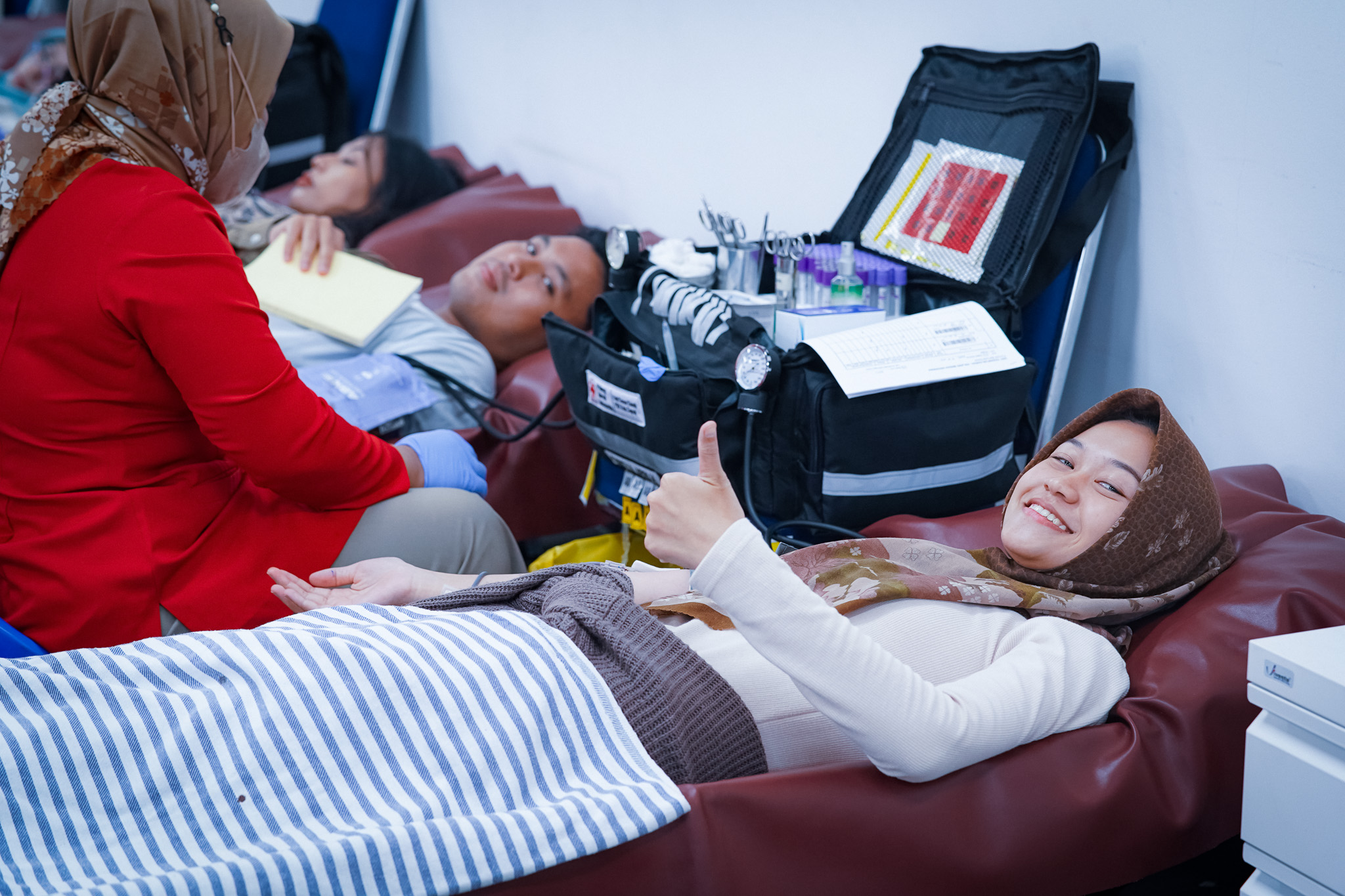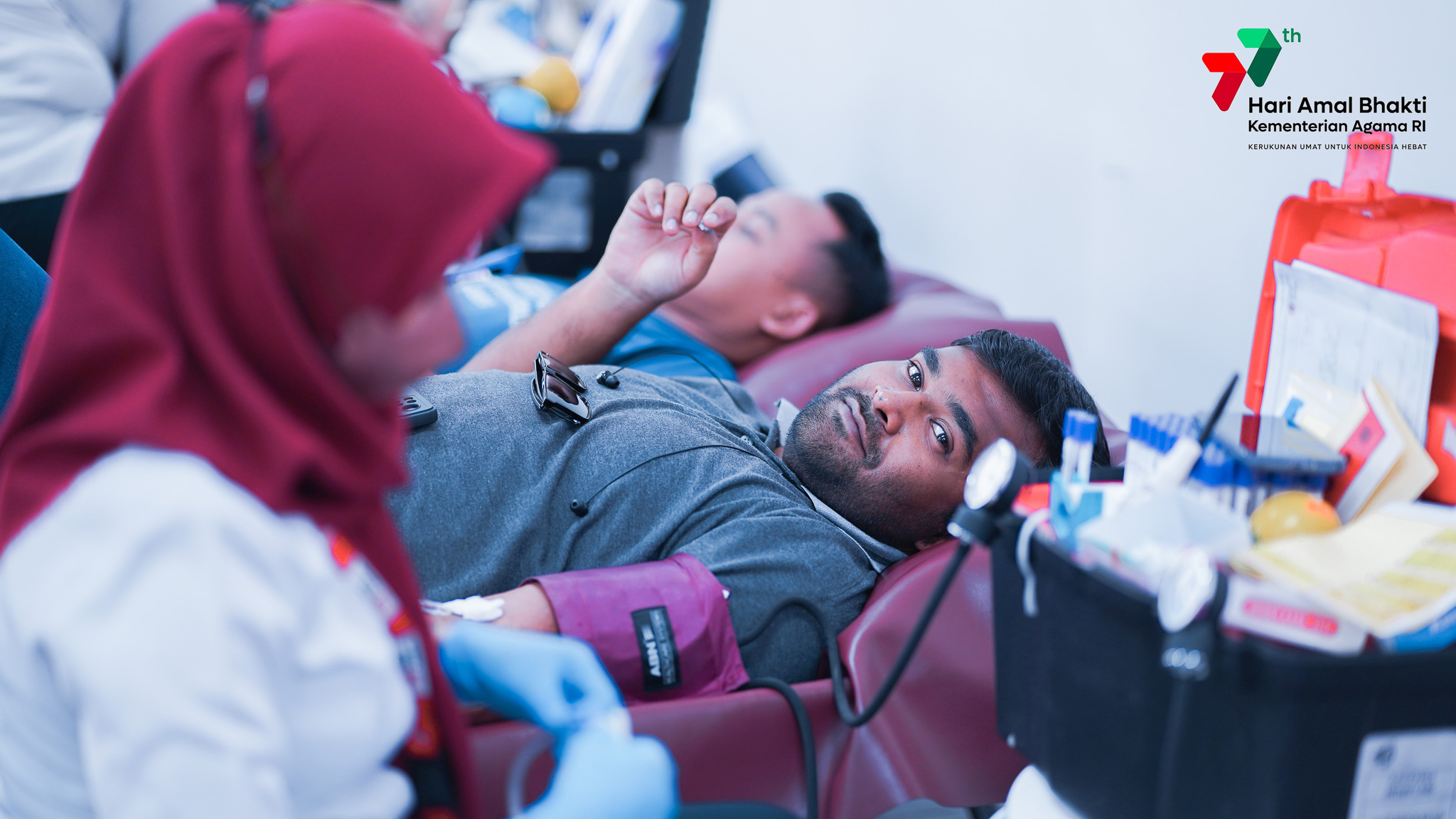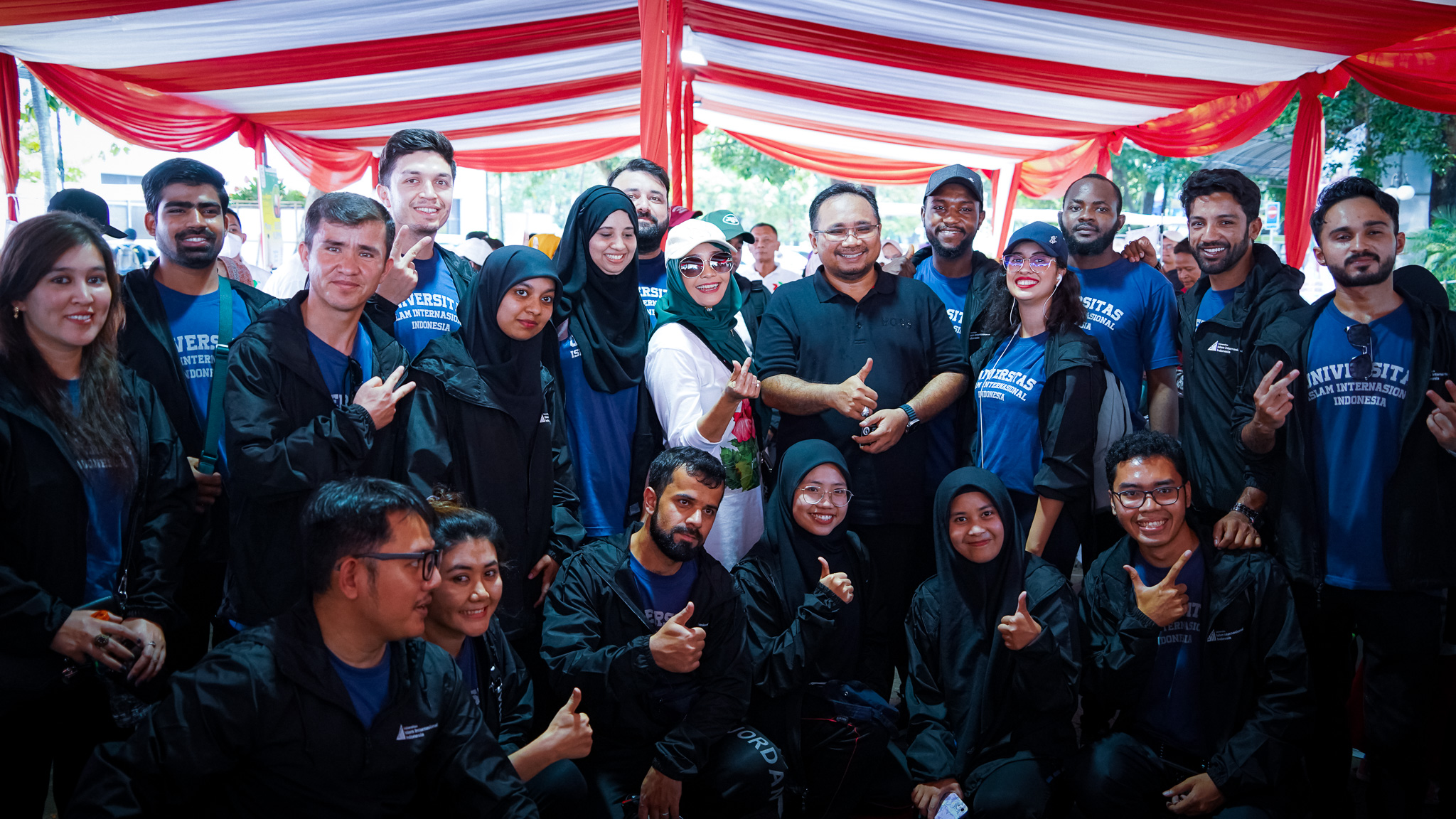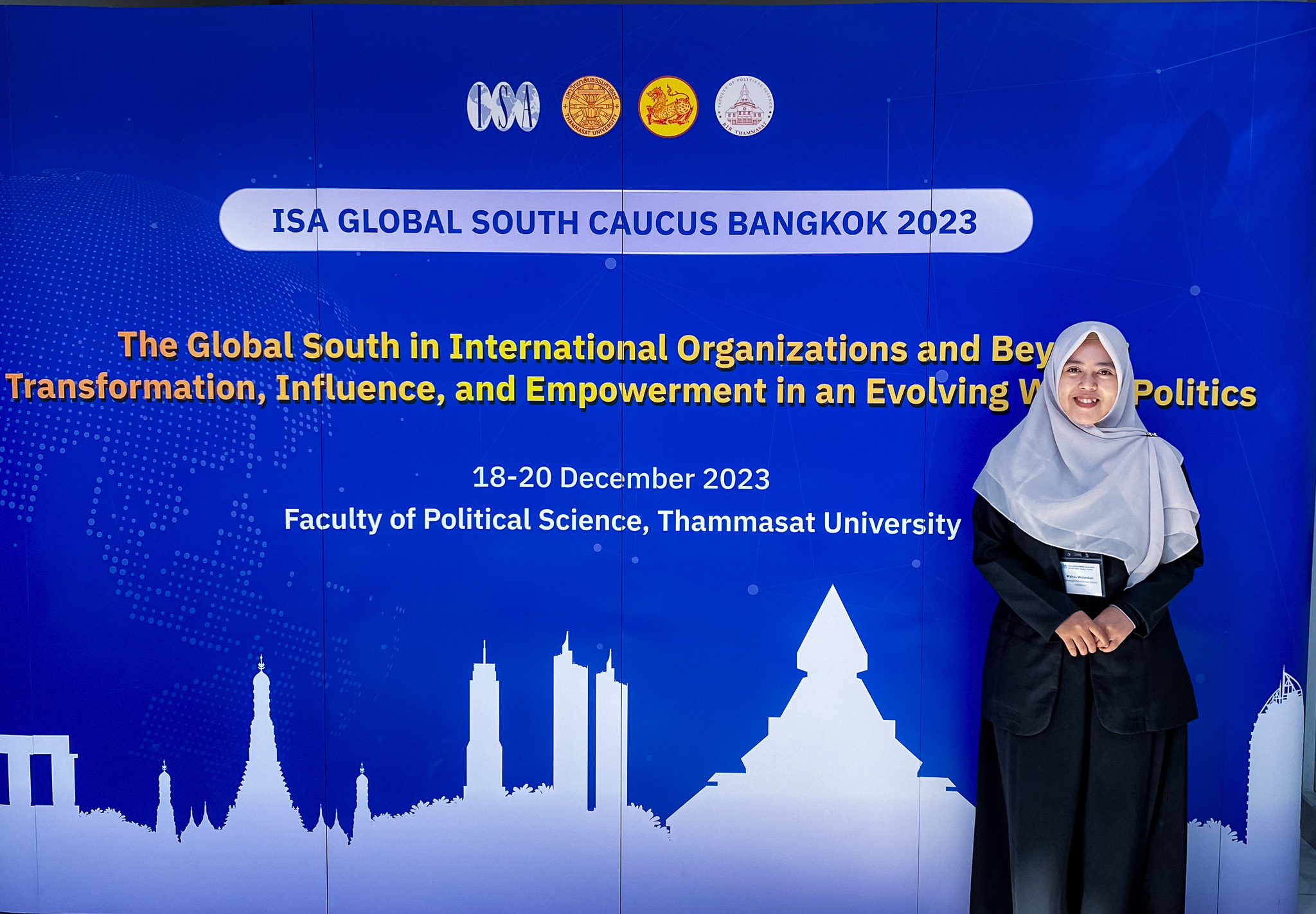UIII Holds Blood Donation Campaign to Commemorate MoRA’s Hari Amal Bhakti
January 22, 2024Contributor: Rashid Shabir Abbasi | Editor: Supriyono

UIII.AC.ID, DEPOK - In honor of the 78th Hari Amal Bhakti of the Ministry of Religious Affairs (MoRA) of the Republic of Indonesia, Universitas Islam Internasional Indonesia (UIII) conducted a blood donation campaign on January 18, 2024, in partnership with the Depok’s Indonesian Red Cross (PMI).
The initiative, aligned with the university's broader vision of contributing to the improvement of human life and civilization, was aimed to encourage voluntary blood donations and raise awareness about the critical need for donations. The campaign was carefully planned to inspire and encourage more people to participate, building a community spirit during the donation process, especially for first-time donors.
The campaign saw an enthusiastic response from students, staff, and the local community. UIII organized a blood donation drive, meeting the Hari Amal Bhakti goals and sticking to their commitment to community well-being.
The objectives of the blood donation drive were twofold: firstly, to organize an event where volunteers actively participated in extending support to those in need of blood transfusions, and secondly, to raise awareness within the community about the importance of regular blood donations for maintaining a sustainable blood supply.
Blood donation is a simple yet powerful act that can save lives, especially playing a crucial role in medical emergencies and major surgeries. Blood transfusions are vital in various medical scenarios, including major surgeries, accidents, and childbirth. Approximately two-thirds of blood donations are used to treat medical conditions such as anemia, cancer, and blood disorders.
UIII's initiative comes at a crucial time when Indonesia faces a shortage of blood supply, as shown in the 2022 PMI Central Blood Donor Unit Annual Report. In 2022, the country required 5.5 million bags of blood, but only 3.7 million bags were collected from voluntary donors. The data highlights the urgent need for more blood donors to bridge this gap and ensure a sufficient supply of blood for potential medical emergencies.
UIII's dedication to community well-being as shown through the success of this blood donation campaign, reminds us of how coming together can positively affect healthcare and the welfare of our community. The university urges everyone to think about the straightforward yet impactful act of donating blood, emphasizing that every contribution counts and can greatly impact the lives of those in need.
- Distinguished Moroccan Delegation Visits UIII to Discuss Academic Collaboration
- Football Fever at UIII, A Global Community Celebrates Indonesia’s Victory
- The Garuda Soars, Indonesia’s Historic Football Victory Inspires a Nation
- From Belgrade to Jakarta: Advancing Religious Moderation Through Global Cooperation
- UIII Strengthens Academic and Interfaith Cooperation at the Fifth Indonesia-Serbia Dialogue
- Dr. Philips J. Vermonte Appointed as Spokesperson for Foreign Affairs at Presidential Communication Office
- UIII Rector Highlights Education’s Role in Interfaith Dialogue at Serbia-Indonesia Forum
- UIII Partners with Sentra Medika Hospital for Health Facility Expansion
- UIII Joins National Quality Assurance Network to Enhance Accreditation
- How to Get Started with UIII’s New ‘TripleAiYou’ Mobile App


